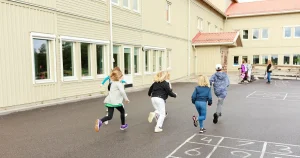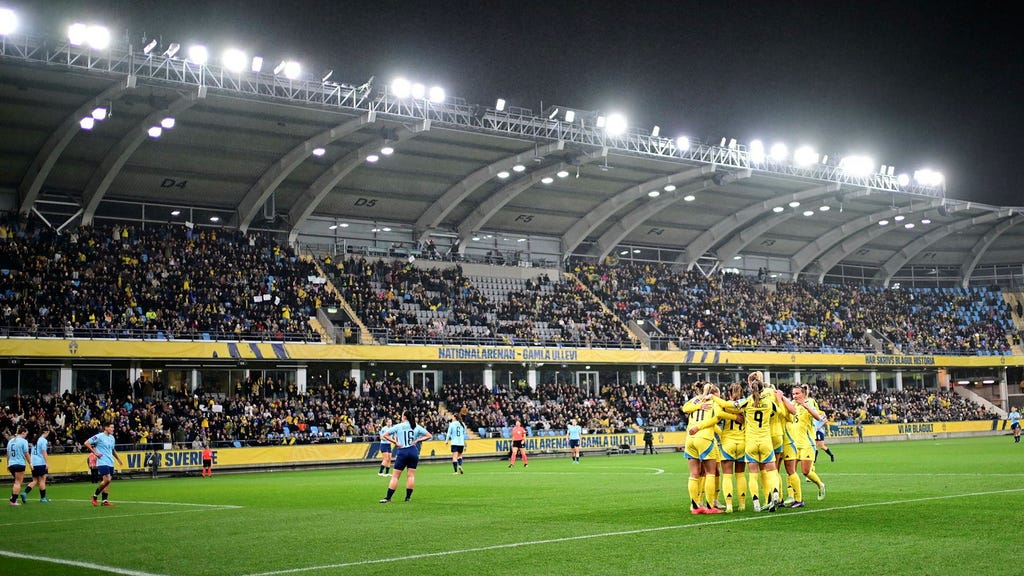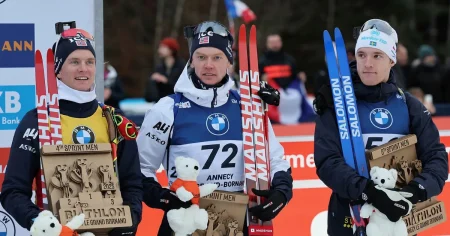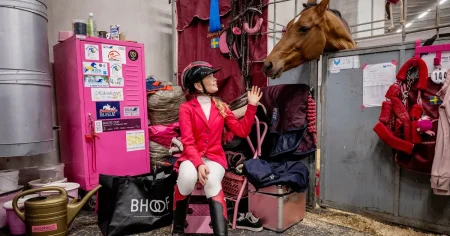The Swedish Football Association’s decision to not renew the contract designating Gamla Ullevi stadium in Gothenburg as the national arena for the women’s national team sparked disappointment in December. Lotta Nibell, CEO of Got Event, the company managing Gamla Ullevi, expressed her dismay to Göteborgs-Posten, emphasizing the emotional connection to the stadium’s history with the team. While this decision signaled a shift away from Gamla Ullevi as the primary venue, it didn’t entirely preclude the stadium from hosting future matches. The announcement of the Nations League schedule revealed that Gamla Ullevi would indeed welcome the team back for their match against Wales on April 8th.
The upcoming Nations League campaign for the Swedish women’s national team presents a mixed bag of venues. While Gamla Ullevi secures a single match, Strawberry Arena in Solna, Stockholm, takes center stage, hosting both the home opener against Italy on April 4th and the final group stage match against Denmark on June 3rd. This division of hosting duties reflects a strategic approach by the Football Association, potentially balancing factors such as stadium capacity, geographic reach, and logistical considerations. National team coach Peter Gerhardsson expressed his enthusiasm for playing in front of home supporters in both Stockholm and Gothenburg, highlighting the importance of fan engagement and support during the Nations League competition.
The chosen venues for the Nations League matches represent a departure from the previous focus on Gamla Ullevi as the dedicated home ground. This shift might be influenced by various factors, including the desire to expand the team’s reach across different regions of Sweden, providing more fans with the opportunity to witness live matches. Strawberry Arena’s larger capacity compared to Gamla Ullevi could also play a role, especially for high-profile matches like the opener against Italy and the final group game against Denmark. The Football Association’s decision to utilize multiple venues demonstrates a flexible approach to match hosting, potentially adapting to specific match requirements and aiming to maximize fan attendance and engagement.
The complete schedule for the Nations League group stage encompasses both home and away fixtures, providing a balanced mix of challenges and opportunities for the Swedish team. The campaign kicks off with two away matches: against Denmark on February 21st and Wales on February 25th. These initial away games will test the team’s resilience and adaptability on foreign soil, setting the tone for the subsequent home fixtures. The away match against Italy on May 30th will be another crucial test, preceding the final home game against Denmark. This alternating pattern of home and away matches ensures a dynamic and competitive group stage, offering the team valuable experience in diverse playing environments.
The selection of Strawberry Arena as the primary venue for the Nations League home matches underlines its growing prominence in Swedish football. Located in the Solna municipality, part of the greater Stockholm area, the stadium offers a modern and well-equipped setting for international fixtures. Its larger capacity compared to Gamla Ullevi allows for greater fan attendance, potentially creating a vibrant and electrifying atmosphere for crucial matches. The choice of Strawberry Arena also reflects the strategic importance of the Stockholm region as a central hub for Swedish football, offering convenient access for fans from various parts of the country.
While the decision to not renew Gamla Ullevi’s status as the national arena for the women’s team may have initially disappointed some, the inclusion of a Nations League match at the stadium demonstrates its continued relevance in the landscape of Swedish football. The blend of venues utilized for the Nations League campaign reflects the Football Association’s adaptable approach, balancing factors such as stadium capacity, geographic reach, and logistical considerations. The chosen schedule, with a mix of home and away fixtures, ensures a challenging yet rewarding journey for the Swedish women’s national team as they compete in the prestigious Nations League competition.














